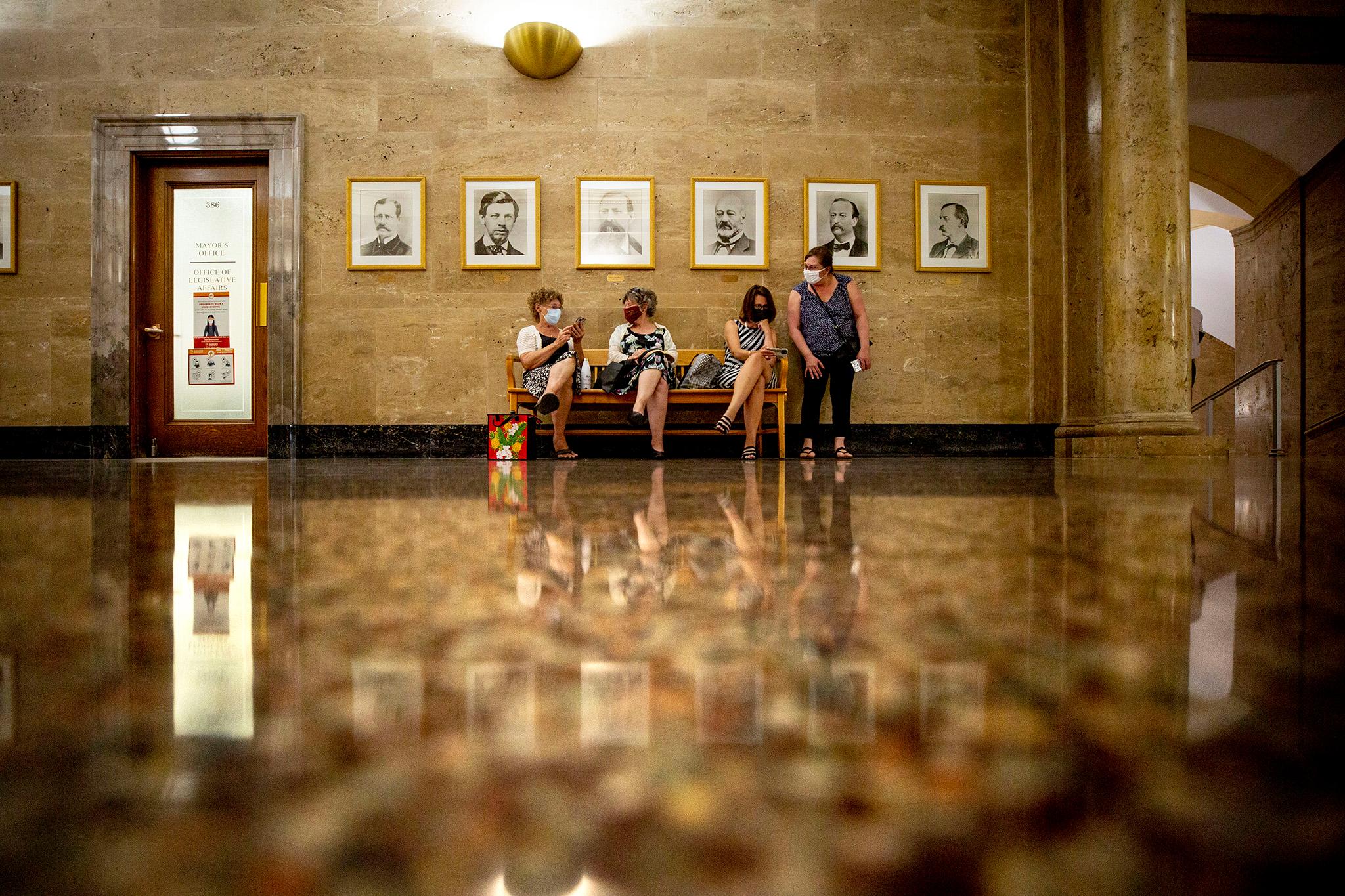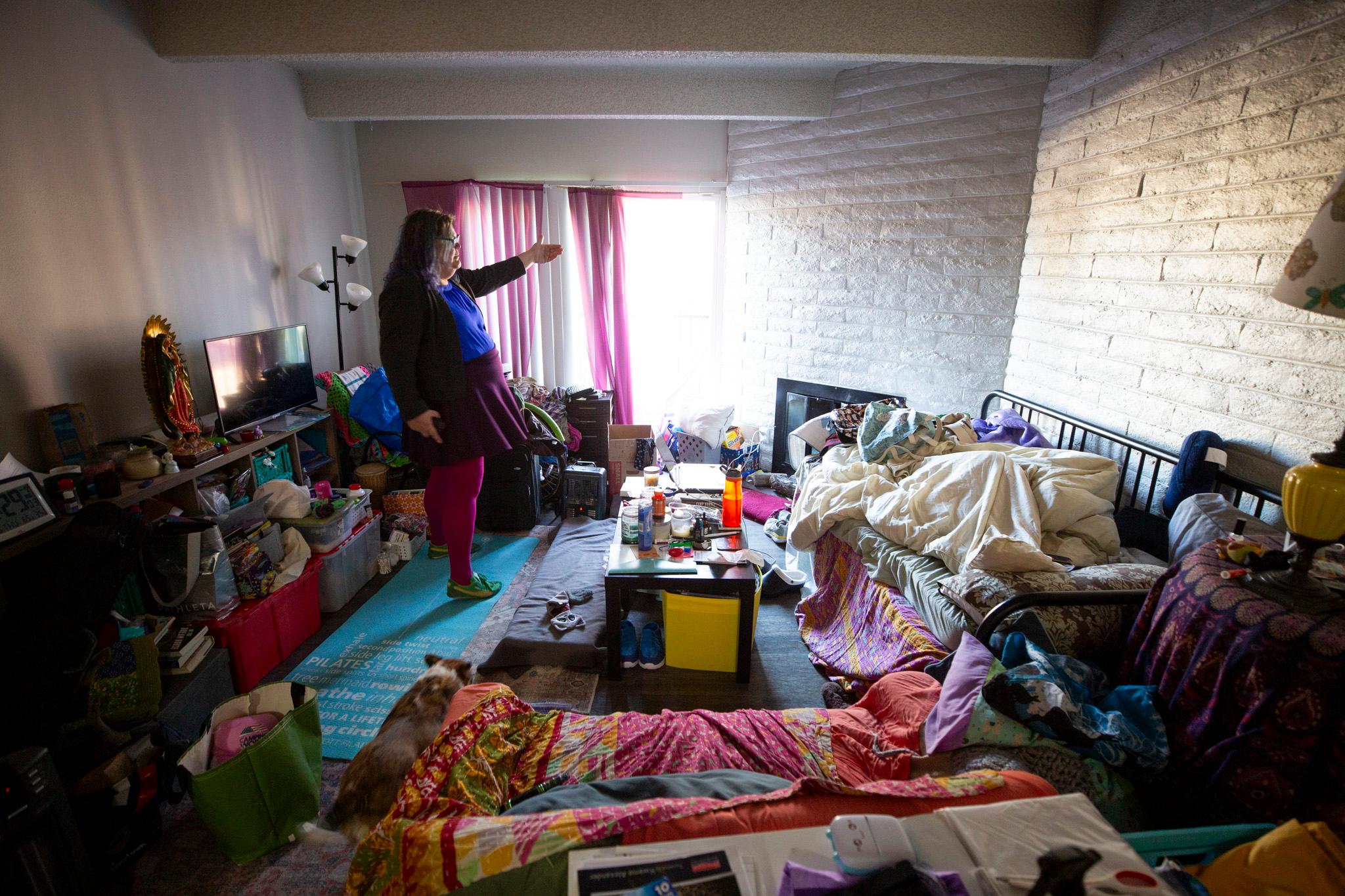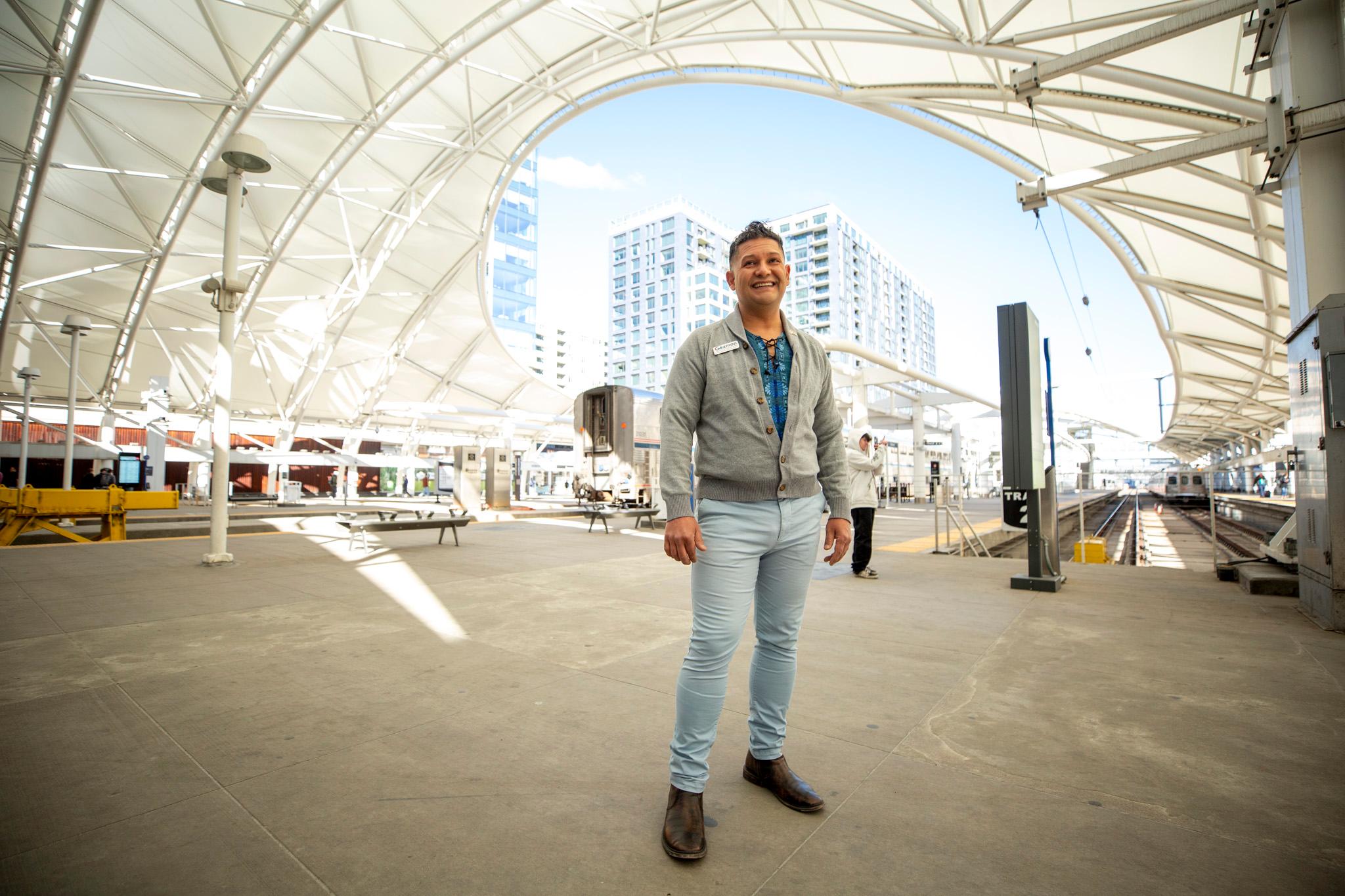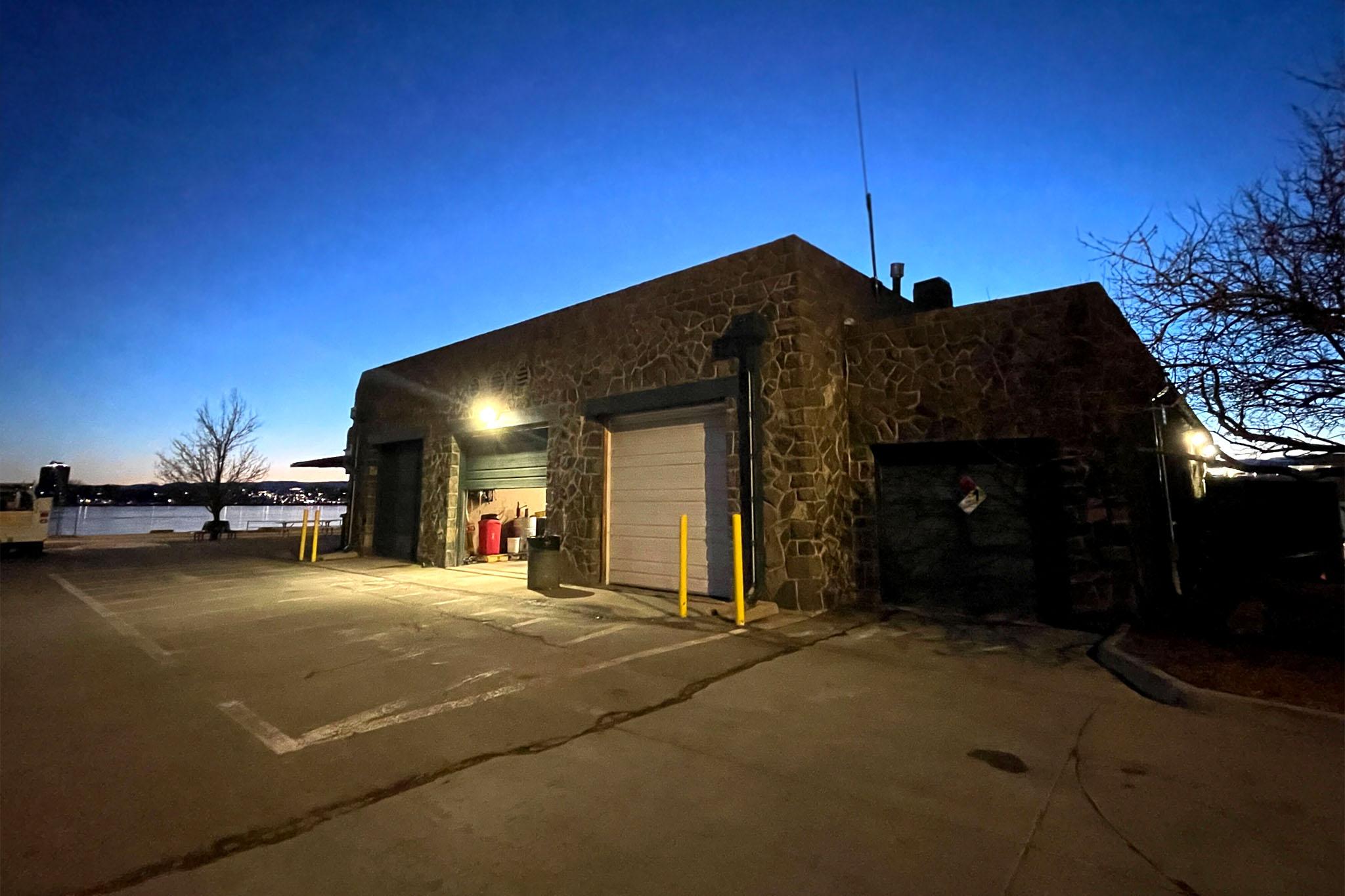UPDATE: On December 22, the city's land-use committee unanimously advanced changes to the group living rules to a vote of the full city council in January.
Councilmembers Chris Herndon, Amanda Sandoval, Kendra Black, Candi CdeBaca, Paul Kashmann and Jamie Torres unanimously advanced the amendment.
Homelessness and housing insecurity aren't abstract to Ann White and Pam Jiner, who are active in their Montbello neighborhood organization.
They see people sleeping in cars on the northeast neighborhood's streets. They've seen families double up in a home to split costs but still get evicted when rent increases.
"We have compassion for the homeless," said White, who believes rent control is among the solutions that should be explored.
What she and Jiner don't see is how housing problems would be addressed by a proposal to change Denver's zoning code to allow halfway houses in more parts of town and to increase the number of unrelated adults who can share a single-family home.
Jiner said proponents of the proposed changes have tried to make opponents "feel guilty" by portraying them as a way to address Denver's housing crisis.
"What is the real reason?" said Jiner, who is Black. "What is the long-term goal for instituting something like this that is only going to impact communities of color?"
Such suspicion and skepticism have helped prompt changes since the proposed group living amendment was introduced to the public early this year, shortly before the pandemic hit Denver. The drafters had originally called for increasing the number of adults who aren't related to one another who can legally share a single-family home from two, as the current zoning code allows, to at least eight, with more allowed in larger homes. That was lowered in May to up to five unrelated adults who could share most homes, and as many as 10 sharing larger homes. On Tuesday, City Council's Land Use, Transportation & Infrastructure committee will vote on a proposal that no longer contains a provision for 10 people in a larger home and that limits the number of unrelated adults allowed to share any home in Denver to five.
The proposal that emerges from the Land Use, Transportation & Infrastructure committee won't become law unless it is adopted by the full City Council. City Council is expected to hold a public hearing and then a vote on the proposal early in 2021.
Before the proposal got to City Council members, it was vetted by the Planning Board, composed of 11 volunteers appointed by the mayor to advise him and City Council on land use issues. The Planning Board members -- who include a realtor, architects and the founding chair of a Montbello economic development nonprofit -- tweaked the proposal to require an annual review for four years to determine whether the changes have unintended consequences.
In addition to proposing to limit the number of unrelated adults who can share a home to five, the measure up for a vote Tuesday would bar halfway houses from residential areas where only single-family, duplex and row house homes can be built. Other measures hammered out in the months since the proposal first went public include steps meant to ensure only smaller group homes -- including homes for seniors or the disabled -- can be located in low-density residential neighborhoods.
Councilmember Jamie Torres, who is a member of the Land Use, Transportation & Infrastructure committee, said the proposed zoning code changes could help families who are in the position her family was in when she was a teenager. She remembers moving in the middle of the night to stay with relatives and another middle-of-the-night move, to stay with friends.
"For my family, it was single moms supporting one another and bonding to provide stable housing for their kids and themselves," Torres said.
She said constituents who are living two or three families to a home to afford housing are fearful of drawing attention to themselves by speaking up in favor of the proposed zoning changes.
"You won't hear from the multifamily households that are in my district," Torres said.
She said she also felt a need to speak up for people coming out of prison who could benefit from smaller halfway houses in neighborhoods where they could feel at home as they try to restart their lives. Torres said that too often, people assume halfway house residents are violent criminals, not the women she has met in such facilities who went to prison for writing bad checks -- what she described as "crimes of necessity."
Torres noted that the proposal still would allow halfway houses and shelters for people experiencing homelessness in more parts of town than they are now.
"I've got to find some of the silver lining there," she said.
One suggested change to the existing code is to drop requirements that halfway houses be far from schools. City planners say no evidence supports concerns that halfway houses endanger school children, and that dropping setbacks around schools increases the amount of land available for such facilities.
The proposed amendment emerged from two years of discussions involving a Group Living Advisory Committee with four dozen members who included the two at-large members of City Council, Robin Kniech and Debbie Ortega. The other volunteers serving on the committee included representatives of organizations that advocate for or serve people experiencing homelessness, such as Denver Homeless Out Loud and the shelter and housing provider Delores Project. Also with a seat at the table were people sharing homes; commercial and nonprofit operators of drug treatment centers, halfway houses and senior living facilities; an advocate for people with disabilities; a developer known for building income restricted housing; and the city's housing and public safety departments.
Neighborhoods were represented on the advisory board by Capitol Hill United Neighbors, Curtis Park Neighbors, Old San Rafael Neighborhood Organization, Southmoor Park West, Swallow Hill Neighborhood and the umbrella Denver Inter-Neighborhood Cooperation.
White and Jiner said they first heard about the proposal in October of 2019, when they learned that neighborhood organizations like their Montbello 2020 were being invited to come to city hall to learn about the proposal. White told city planners it was difficult for people to get downtown for meetings.
"You guys should come into the community," White said she told Andrew Webb, the city planner who has managed the group living project.
Webb did come to Montbello, but not until February. A discussion of the city's pit bull ban was also on the agenda for the Montbello 2020 meeting that Webb was to attend, so White had expected a crowd at the Montbello rec center.
"We used all the chairs and people were standing against the call," White said.
Webb's presentation drew as much interest as pit bulls, White said. And her neighbors made clear "they did not want group living," she said.
Jiner said part of the reaction was to the scope of the proposal, which overhauls not only regulations on household size and the location of halfway houses and shelters, but where drug and alcohol treatment centers, senior assisted living and other facilities can be placed.
"There was so much grouped up in it," Jiner said as she reflected on the February community meeting. "It was confusing to have to consume all of it at one time."
Resistance was still evident during an early December town hall organized by City Councilmember Stacie Gilmore, whose district includes Montbello.
"This is going to devalue our home values," area resident Melissa Chaffin wrote in the comment section of the online platform where the meeting was hosted. "Many of us work very hard to own a home and take care of it. Why should we now have to worry about dubious groups of people living next door?"
Another area resident, Tracy Vance, wrote about seeing Facebook postings indicating "there was going to be many homeless people group homes going into our neighborhood. Is this going to happen?"
Webb, the planner, said the changes in the zoning code are not expected to increase the number of people, unrelated or not, sharing homes in Denver or lead to the establishment of many more halfway houses, homeless shelters or drug treatment centers.
City planners portray the proposal as a way to legalize the way many people are already sharing housing at a time of concern that the economic impact of the coronavirus will increase housing instability. Planners also say the proposal furthers the city's goal of ensuring more affordable housing is provided and all Denverites have access to housing after discrimination based on race, sexual orientation and other factors kept them from it.
Councilmember Gilmore said the proposed changes could, for example, open the way to facilities where aging residents could move when they no longer wanted to be in their own home but wanted to stay in the neighborhood where they had raised their children. Gilmore also said the limit of two unrelated adults in a home needed to be raised, and that five seemed like a reasonable number. Gilmore said too little time had been devoted to addressing concerns sparked by the proposal, especially in a district where many people complain that the city is not doing enough to enforce existing zoning and building codes.
"I would have loved two years ago, two and a half years ago, when the advisory committee started going down this path that there was more of a conversation with the community," Gilmore said. "There were plenty of missed opportunities to just raise the conversation and allow people to percolate on it."
City Councilmember Kevin Flynn believes residents' concerns were not fully explored because of the makeup of the advisory committee.
"It was just clear to me at the very beginning that we didn't have everybody at the table," Flynn said. "I tried to point that out."
Flynn said he recognized that the code needs updating, but said the original proposal went too far. That original proposal might have squeaked through City Council, Flynn said. With the changes that have been made in recent months, he expected the amendment to be adopted with the support of more councilmembers and have broader acceptance throughout Denver.
City Councilwoman-at-large Kniech, who sat on the Group Living Advisory Committee, wrote in a Denver Post op-ed earlier this year:
"As 'white only' covenants were struck down, neighborhoods and cities developed racially neutral zoning that continued to segregate by prohibiting ways of living that were more common among black residents, including larger family sizes."
Kniech added that "uses considered undesirable, like community corrections or shelters, were allowed near predominately non-white neighborhoods -- where they remain today. But the same sized residential care for seniors or people with disabilities was also allowed in single-family areas -- demonstrating that group residential care can coexist with single-family housing and that our zoning code is based more on perceptions about occupants than on impacts related to size or format."
Jiner, though, predicts that people in predominately white neighborhoods will have the time, resources and homeowners' association covenants to continue to resist change. Neighborhoods like hers, she said, will become more crowded and commercial if they attract investors looking for homes that can be rent to people who want to share housing or plots where halfway houses can be established.
"It's almost as if it's targeted to minority communities, communities of color," Jiner said of the group living proposal.
Gilmore, Jiner's representative on the City Council, said she also had been concerned about fairness when she first heard about the proposal. Gilmore noted that the changes only apply to the 80 percent of the city covered by a zoning code adopted in 2010, not the 20 percent that still falls under a code adopted in 1956. Gilmore said 75 percent of her district is covered by the old code. As part of the discussions sparked by the group living amendment, city planners have said they are preparing to take action early next year that would ensure that at least the provisions on household size -- increasing the number of adults who aren't related to one another who can legally share a single-family home from two to five -- would apply to all of Denver.
Jiner said that her concerns have not been addressed by the changes made since the group living proposal was first introduced. She seemed resigned to the measure passing in some form, but not happy.
"The city's doing what the city wants to do," Jiner said. "Where do we turn? This is the cry of the community."












